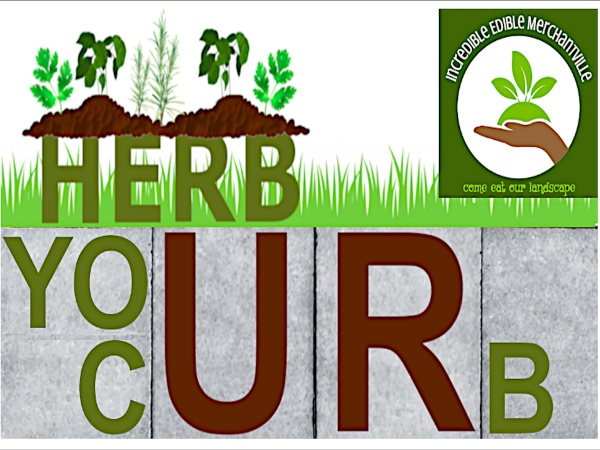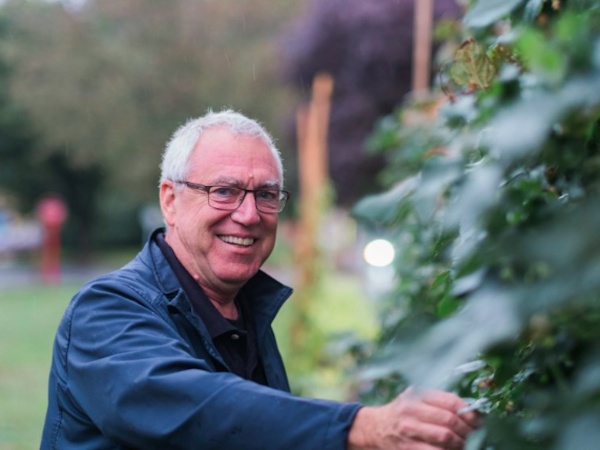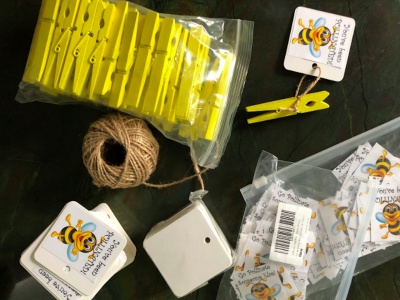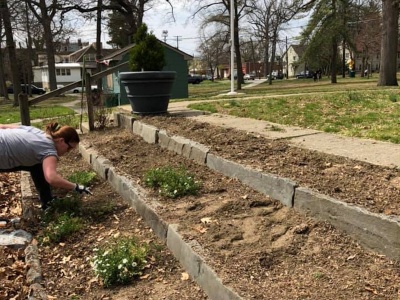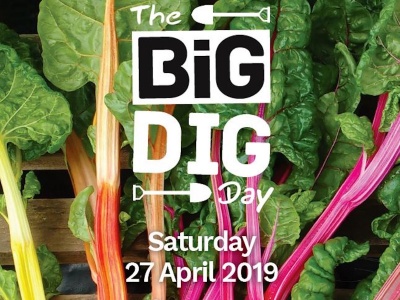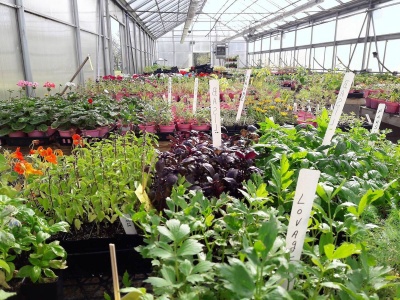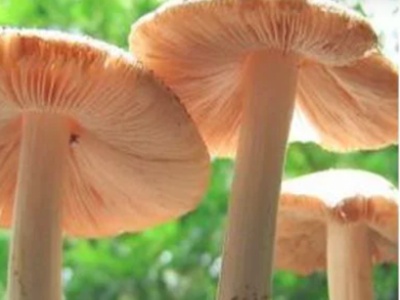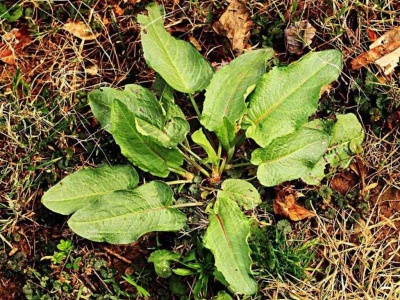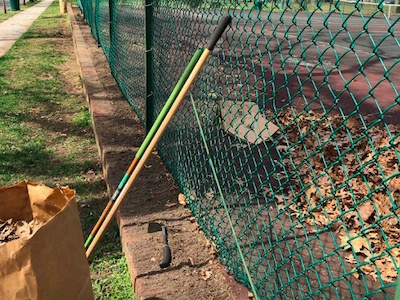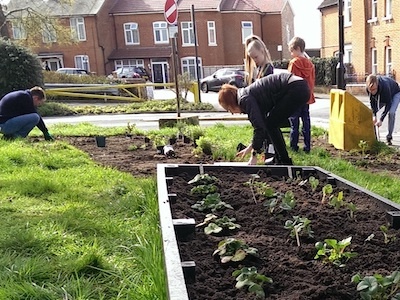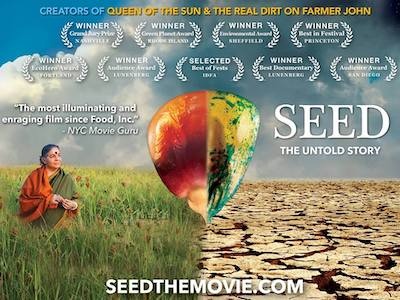Stewardship
Our environment often seems to be dominated by pavement, and ripe for community greening. That narrow space between the sidewalk and street curb we know as the hellstrip is sometimes planted in grass, filled with weeds or simply bare trampled earth. One of IE Merchantville's small action projects this year is to improve land stewardship on these Borough spaces by encouraging residents to "Herb Your Curb". Join our efforts by creating a native herb habitat in this forgotten space. It will cool ground temperatures, absorb and filter rainwater, support pollinators, and bring a smile to the passersby. It is important to remember that the hellstrip is a public space, even if you own the property, so keep that in mind when planning. IE has a team of gardening experts who can help you with this. This email address is being protected from spambots. You need JavaScript enabled to view it.!
We still have free hop rhizomes at Eclipse. Just come in and ask. If Chris is there, he will give growing tips. Growing your own hops is a rewarding and surprisingly easy way to make your brew. Plant the hop rhizome. Dig a 4-inch hole in each mound and lay the rhizome into the hole horizontally, with the root side down. Loosely pack the soil down over the plant and cover with straw or mulch to prevent weed growth. Keep the soil consistently moist until the vines begin to sprout.
Stop by the Incredible Edible Merchantville table at the Daffodil Fest tomorrow. Help us pollinate the town landscape and learn about our project. Grab a clothespin from the basket and and a bee tag from the bin. Bee very sneaky . . . Just buzz around . . . Clip on a clothespin . . . Before you're found! With lots of kids . . . and adults we'll get this job done,
Last weekend, residents Brigid Austin and Jessica Stewart started clearing winter's cover from the planting terrace at Wellwood Park in preparation for their IE small action project called "Blueberry Hill". They are active members of the West Maple neighborhood and Garden Club who help maintain and sustain all the flowers and vegetation in the 23 west end planters and bike path. If you'd like to help them water this year, just let the Brigid, Jess or the Garden Club know.
The Big Dig is an online platform to support food growing in the UK, run by Sustain every spring to promote edible gardens and encourage people to volunteer.. The Big Dig Network is all about getting people involved in their local community garden. During this day, gardens welcome volunteers and visitors, new and old, to explore how to grow food and celebrate the start of spring and the new growing season. IE should plan this for 2020!
On April 27th from 10-2, Rutgers Master Gardeners of Camden County, and the Office of Sustainability present the 2019 Green Garden Fair. Featured Speaker is Doug Tallamy, author of Bringing Nature Home: How Native Plants Sustain Wildlife in Our Gardens. The tickets are free, follow link below. Enjoy cooking demonstrations and tastings, shop annual and perennial plants grown by Master Gardeners, have fun with free kids’ garden projects and tour the Educational Garden. Join the Pedal the Park event in the adjacent county park. Learn from ecologically-minded organizations and shop with our vendors. 2019 will be the Biggest fair yet. Don’t miss it!
A newly-discovered type of mushroom could not only play a crucial role in slashing plastic pollution, but could have myriad other uses in addressing the environmental plastics crises the planet faces. Discovered in 2012 by Yale University students, Pestalotiopsis microspora is a rare species of mushroom from the Amazon rainforest that’s capable of subsisting on a diet of pure plastic, or more accurately, the main ingredient in plastic–polyurethane–before converting the human-made ingredient into purely organic matter. It can live off of our plastic waste, without oxygen–meaning that the rare breed of mushroom would make an ideal agent for landfill clean-up, literally from the bottom-up.
Warm March wind, flowering redbuds, and the greening of the lawn: all suggestions of spring. Early spring is when some of the most prolific, most accessible wild edibles make their first appearances of the year. It's when edible plants are at their tenderest and tastiest. And your own backyard might just be the most convenient and most productive place you'll find to forage this time of year. Here are a few of the more common edible weeds that are likely lurking in your yard and garden.
Soil preparation began along the tennis courts at Wellwood Memorial Park, between Linden and Hamilton Avenues, today for one of IE Merchantville's small action, edible garden projects. Core working group members, Joan Brennan and Marie Hanna, worked to clear the brick perimeter planter of leaves, weeds and debris to lay the groundwork for "Jack's Beanstalks" plantings that will grow up and along the built-in chain link trellis around the courts.
Several residents gathered at Eilandarts Center to view a screening of "SEED: The Untold Story" on Friday, March 29th hosted by Incredible Edible Merchantville. The movie chronicles passionate seed keepers protecting our 12,000 year-old food legacy. Few things on Earth are as miraculous and vital as seeds. Worshipped and treasured since the dawn of humankind. In the last century, 94% of our seed varieties have disappeared. As biotech chemical companies control the majority of our seeds, farmers, scientists, lawyers, and indigenous seed keepers fight a David and Goliath battle to defend the future of our food. In a harrowing and heartening story, these heroes rekindle a lost connection to our most treasured resource and revive a culture connected to seeds.


